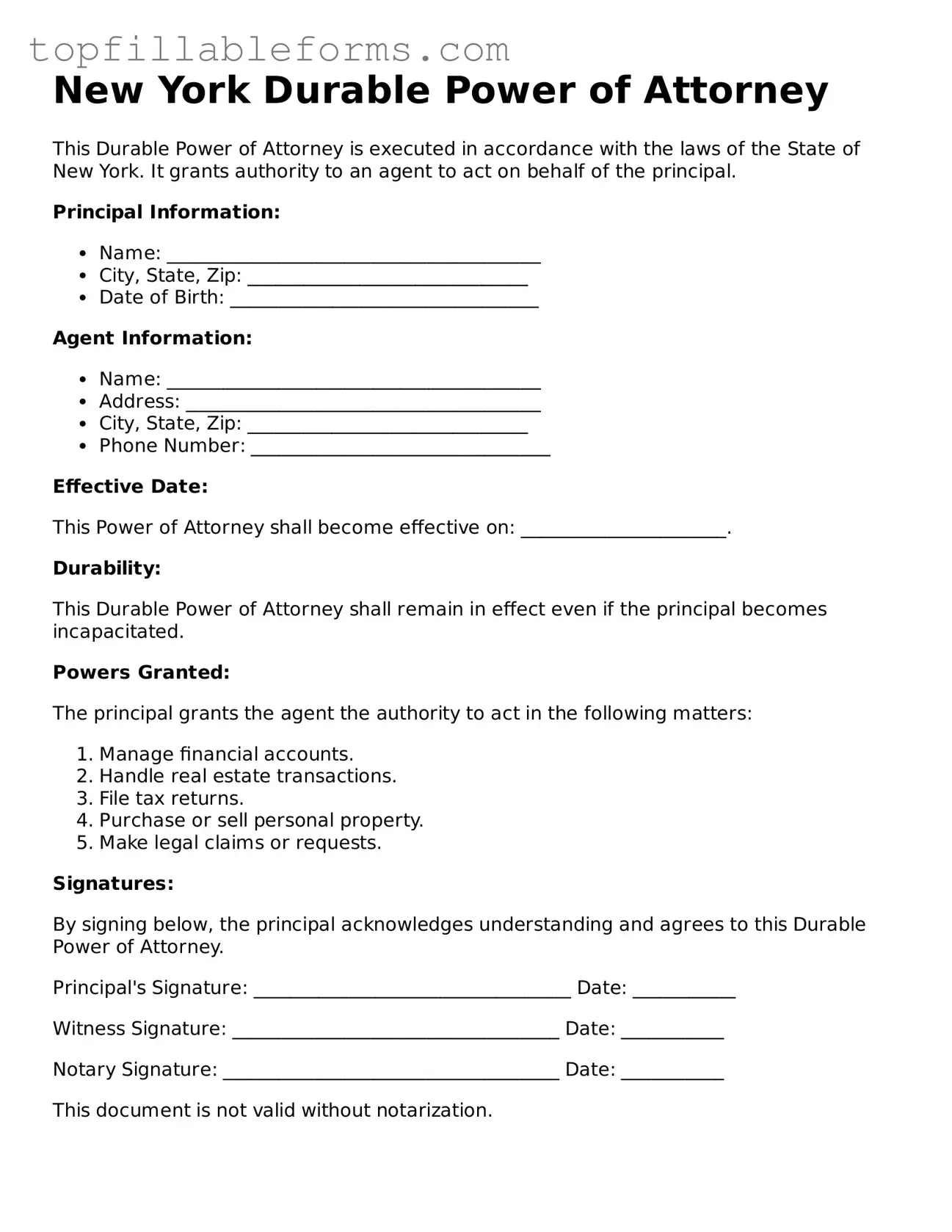Attorney-Verified Durable Power of Attorney Template for New York
A Durable Power of Attorney is a legal document that allows an individual to appoint someone else to manage their financial and legal affairs, even if they become incapacitated. In New York, this form is essential for ensuring that your wishes are honored when you are unable to make decisions for yourself. Understanding the nuances of this form can provide peace of mind and protect your interests in challenging times.
Open Durable Power of Attorney Editor Here

Attorney-Verified Durable Power of Attorney Template for New York
Open Durable Power of Attorney Editor Here
Finish the form now and be done
Finish your Durable Power of Attorney online by editing, saving, and downloading fast.
Open Durable Power of Attorney Editor Here
or
▼ PDF File
